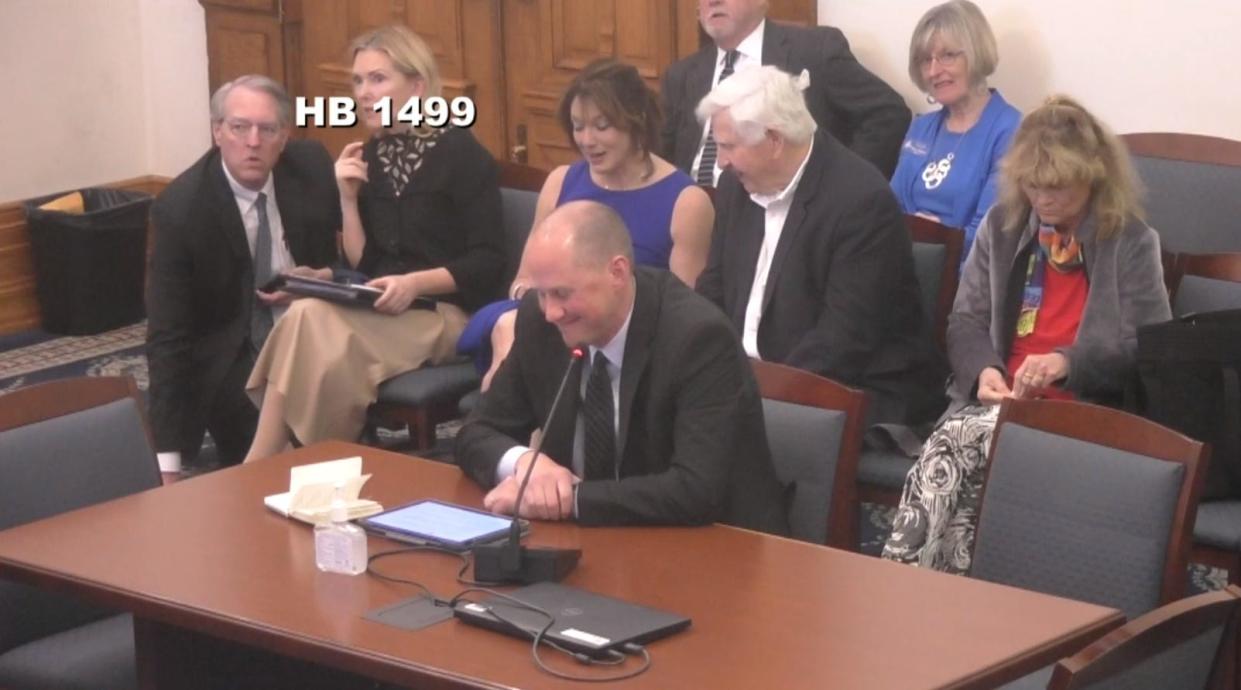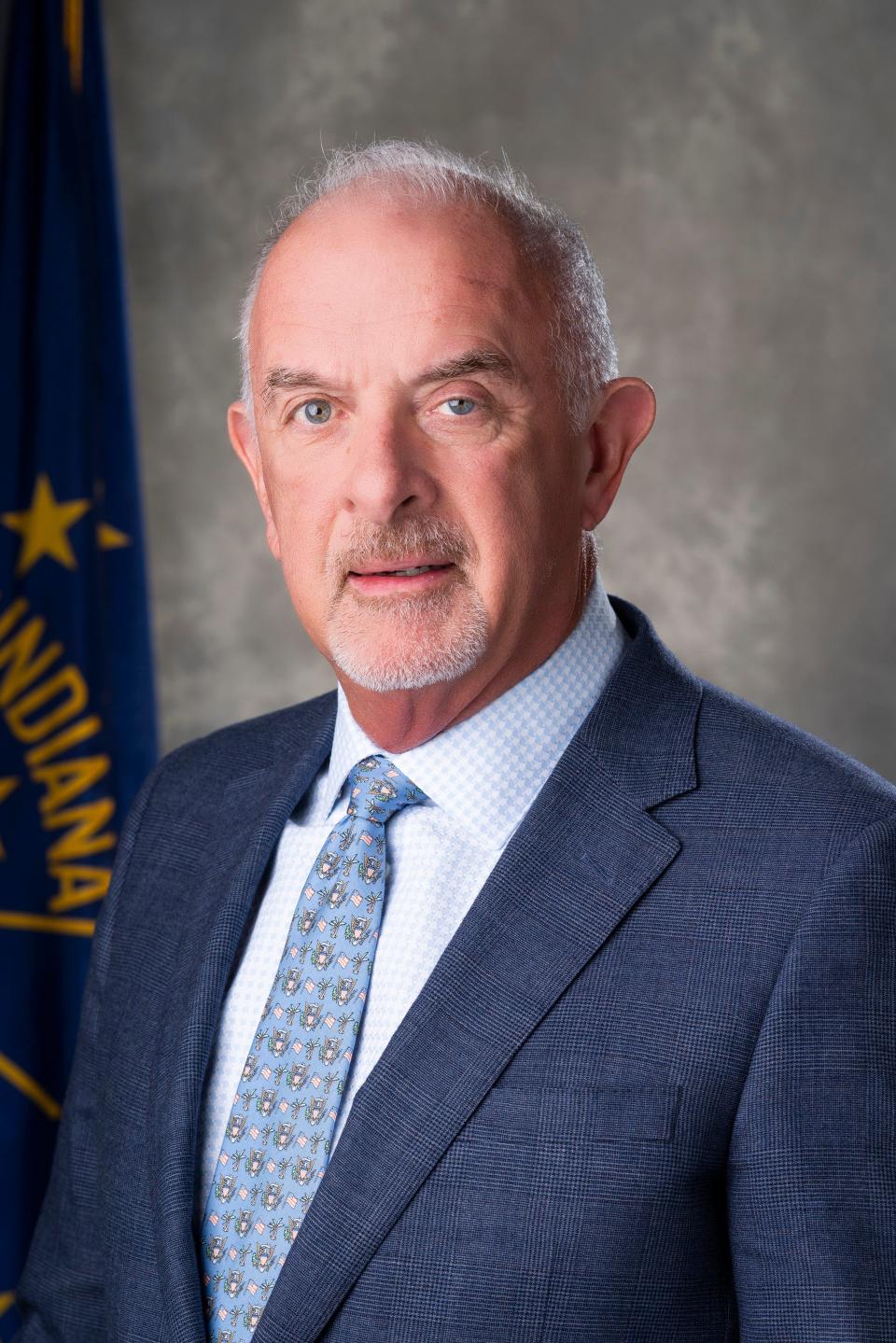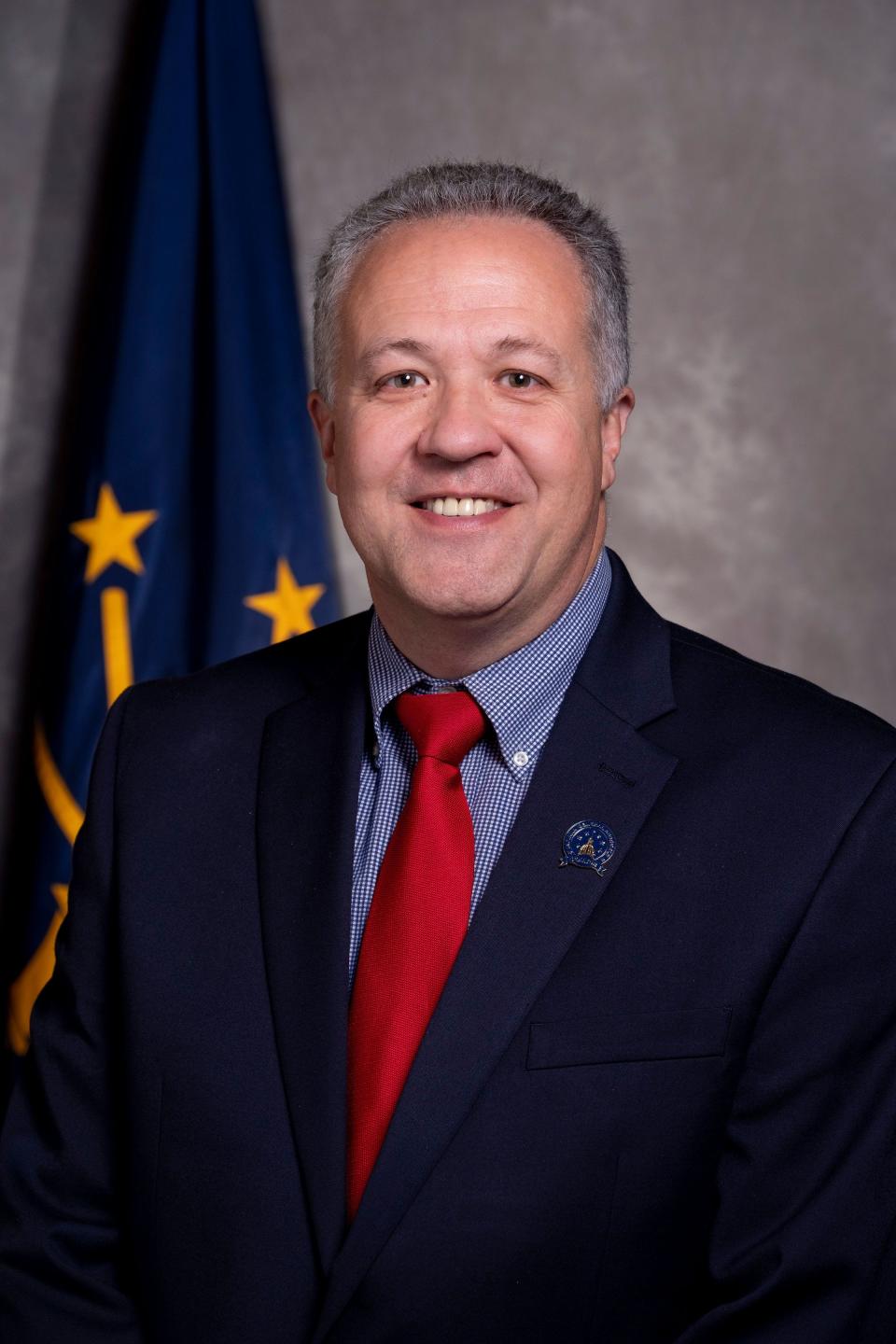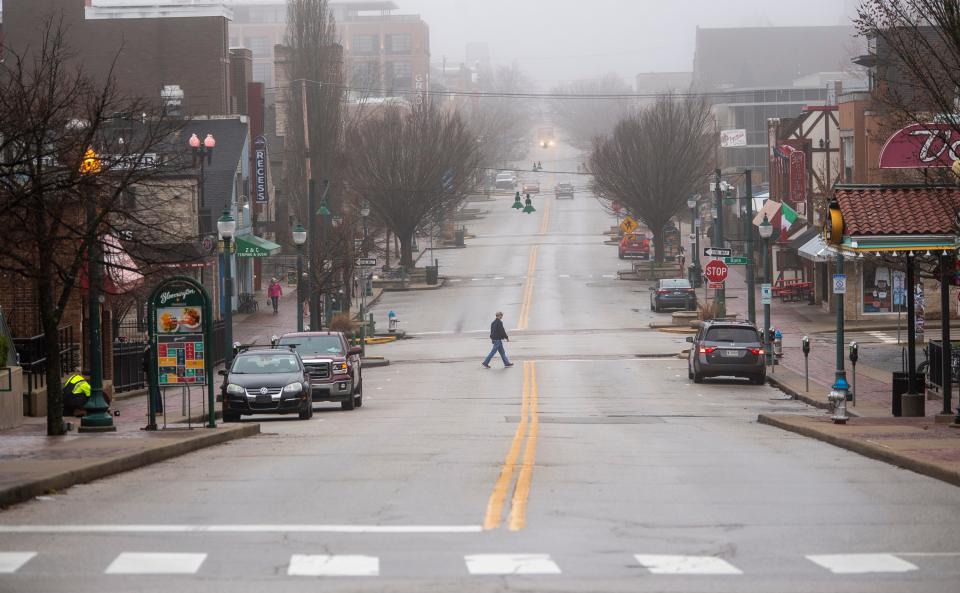Hoosier Daddy? Indiana lawmaker says Monroe County 'needs a dad to tell them what to do'

- Oops!Something went wrong.Please try again later.
State lawmakers scolded Monroe County and Bloomington city government officials this week, saying they misused taxpayer dollars, and one state senator suggested the local governments could benefit from some parental oversight.
“It seems right now that Monroe County and the city of Bloomington needs a dad to tell them what to do,” said Sen. Travis Holdman, R-Markle, chair of the Senate Committee on Tax and Fiscal Policy.
What you need to know: Bloomington's convention center expansion
Holdman’s comment this week elicited laughter in the committee chambers in Indianapolis, but his momentary levity belied the earnestness with which he and others criticized Monroe County and Bloomington leaders for their bickering over the convention center expansion and for what legislators called improper use of tax dollars.

County and city officials blamed each other for the delays and denied using tax money improperly.
Action by the state Legislature about a decade ago enabled Monroe County to adopt a food and beverage tax in 2017. The tax requires everyone who buys a prepared meal in the county — at bars, restaurants, and grocery stores — to pay 1% extra.
The tax has been collected since early 2018 and was expected to have generated about $20 million by the end of last year. Local leaders had planned to use the money for a convention center expansion, but the pandemic interrupted expansion negotiations between city and county officials. Talks have resumed, but county leaders and Mayor John Hamilton disagree about convention center oversight.
City, county and tourism leaders have said the convention center would allow the city to host more — and bigger — conventions, bringing additional tourism dollars to the city, helping existing businesses and further diversifying the local economy. Critics, however, have warned the expansion — estimated in 2017 at $44 million — may not generate as much business and revenue as proponents expect, perhaps leaving local residents with an expensive expansion bill.
More: Is a convention center expansion a good idea? Business, community leaders weigh in
'Your attorney gave you bad advice'
During the pandemic, both Bloomington and Monroe County governments used some food and beverage tax dollars to provide loans or grants to businesses who had been hurt by the sharp decline in tourism. The county gave about $400,000 in grants to more than 30 recipients, while the city provided loans of about $1.5 million to 63 recipients.
State lawmakers on Tuesday criticized those uses of the food and beverage tax funds.
“I don’t mean to scold you or the city of Bloomington and Monroe County," Holdman told Monroe County Commissioner Penny Githens, "but you have been collecting tax … for almost five years and haven’t been using the money for its intended purpose, and that’s very frustrating to us.”

State Sen. Mike Gaskell, R-Pendelton, agreed.
“I don’t think this was an allowable use of the funds under the law,” he told Githens.
Githens told Gaskell the county’s lawyers have told county leaders they could spend the food and beverage tax dollars for economic development and tourism.
“I think your attorney gave you bad advice,” Gaskill said.
Githens said Thursday via email the commissioners disagree with the state lawmakers’ assessment.
The law requires the dollars be used to “finance, refinance, construct, operate or maintain a convention center (or) a conference center” — but also enables city and county governments to spend the money on “related tourism or economic development projects.”
Both Githens and Alex Crowley, director of Bloomington’s Economic and Sustainable Development Department, also emphasized the importance of propping up struggling businesses and nonprofits during the pandemic as they were awaiting the arrival of federal help.
The county provided grants to recipients including WonderLab, The Golf Club at Eagle Pointe and Rising Star Gymnastics, while the city issued loans to organizations including Cardinal Stage Co., Switchyard Brewing and The Bluebird.
Crowley said people may already have forgotten the precarious situation in which many small, local businesses found themselves as they were forced to close or sharply lower capacity to prevent spreading the virus that causes COVID-19.
“There was a very real risk that they just wouldn’t make it,” he said.

Crowley said city leaders determined it made sense to use food and beverage tax dollars to keep those organizations alive and, in the process, help retain Bloomington’s vibrancy.
The city brought together a team of local bankers and other financial experts to scrutinize loan applications to make sure the recipients were likely to repay the loans, he said.
While some recipients “are better at repaying than others,” Crowley said, the city is trying to be flexible given the length of the pandemic.
“We are at this point not forgiving loans,” he said.
Stagnation: Monroe County blames Bloomington. And vice versa.
State legislators on Tuesday also criticized city and county officials for the lack of progress on the convention center expansion.
County and city officials blamed each other for the delays.
County officials said they were “not pointing fingers” but said repeatedly they expect to make progress on the convention center expansion next year because Hamilton is not running for re-election.
Githens said the commissioners and county and city councils agreed on convention center expansion oversight, but Hamilton vetoed the city council’s plan only to have his veto overridden.
Githens said county and city officials — other than Hamilton — plan to have convention center oversight “in place and functioning as of Jan. 1, 2024, because Bloomington will have a new mayor at that time.”
“I’m sorry that it’s been slow,” Githens told legislators.
“We had to take a break because of COVID. And now we’ve gotten … a stonewall that we think will come down with a new election,” she said.
Meanwhile, Mathew Norris, an attorney with Indianapolis law firm Krieg DeVault, who this week represented the city of Bloomington at the Statehouse, said commissioners have repeatedly slowed the process.
“The city doesn’t have any control over county actions, and unfortunately that’s what’s led us here today," he said.
"As recently as yesterday in a meeting of city and county officials when the topic of the convention center was raised by a Bloomington City Council member, the president of the county commissioners said that they would try to get to this issue in a couple of weeks. That same statement was made in the same meeting last month," Norris said.
“So while we know that there is general agreement to move forward with this,” he said, “it’s just been difficult to get city and county officials on the same page on … how to proceed accordingly.”
More: Mayor floats $4M buyout to take over convention center
County, city and business leaders have said they worry if they do not make progress on the convention center soon, the state legislature may rescind the tax. That would either mean the expansion would have to be paid by other means — or that it might not get built at all.
Boris Ladwig can be reached at bladwig@heraldt.com.
This article originally appeared on The Herald-Times: Monroe County use of food, beverage tax criticized at Statehouse

